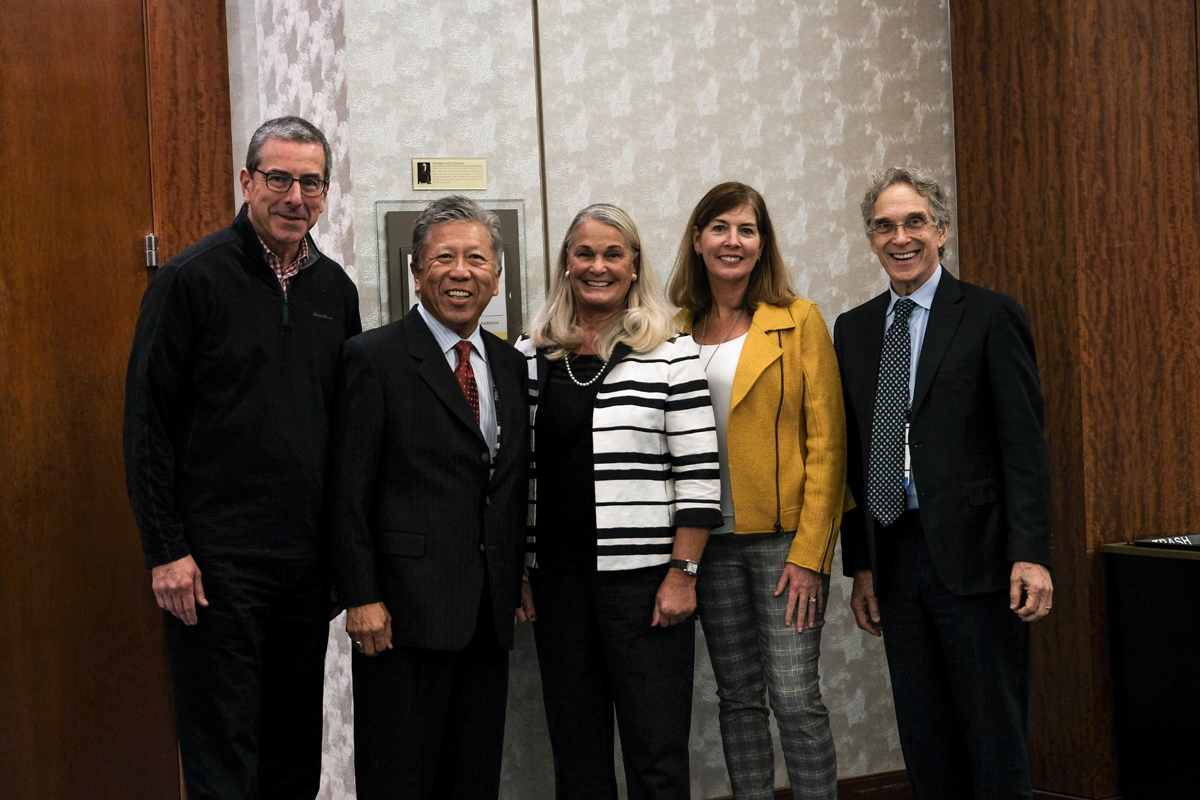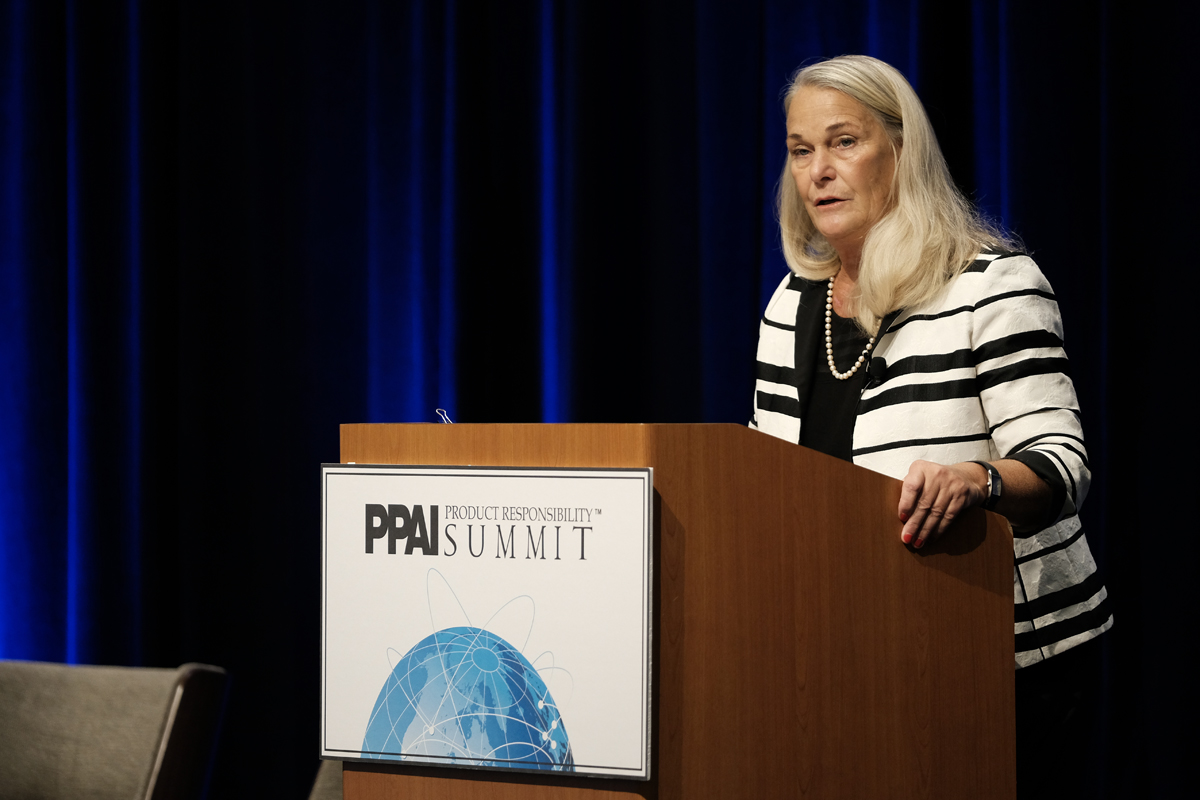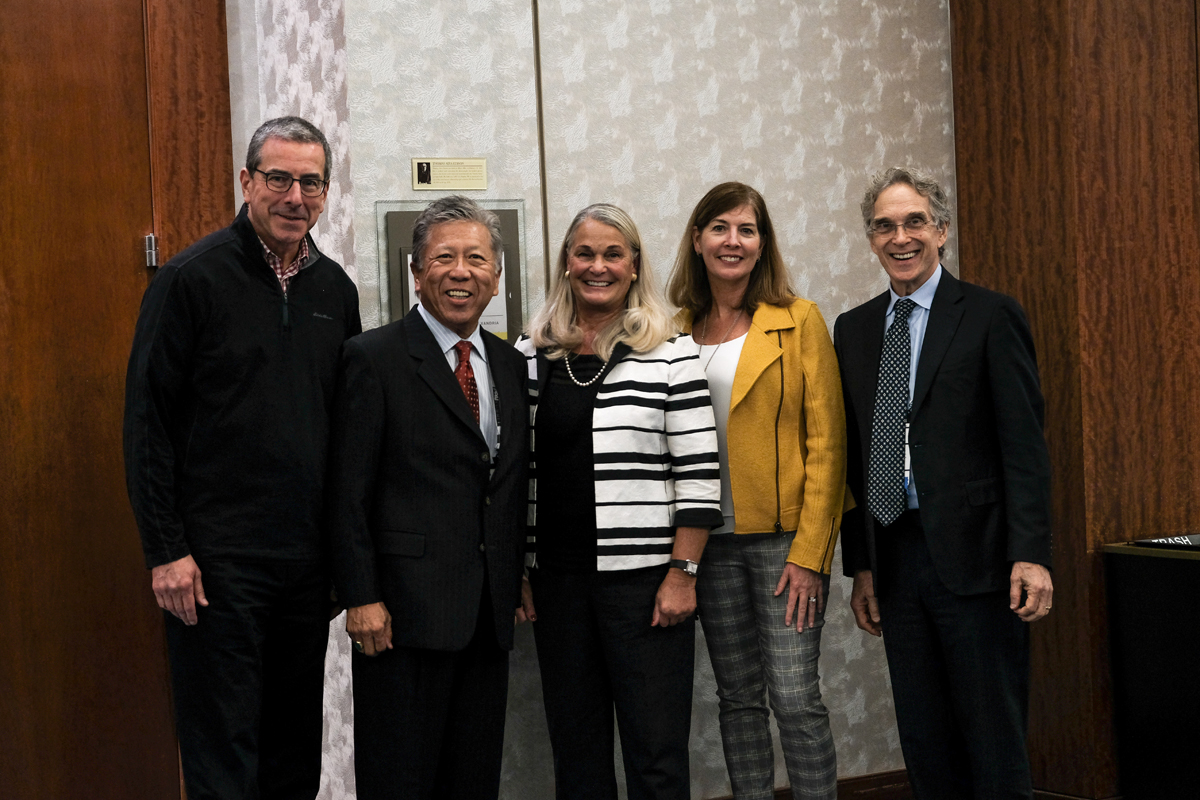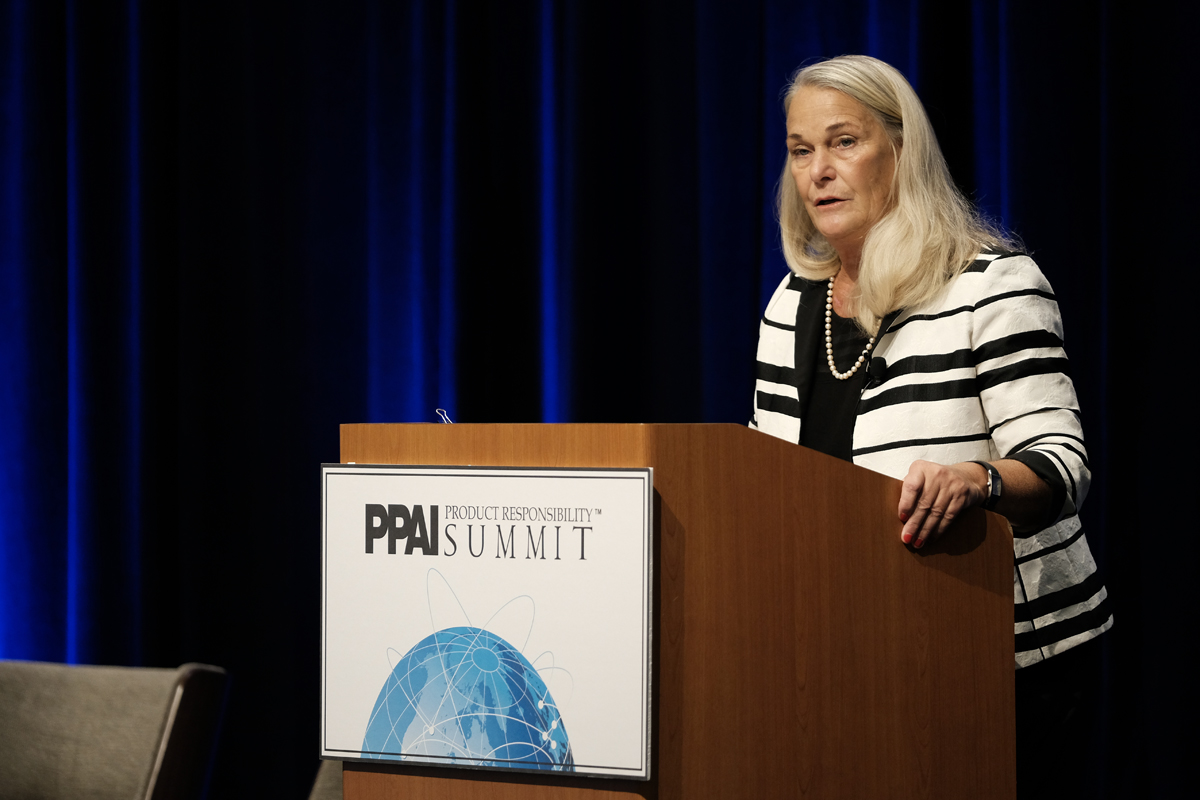CPSC Acting Chairman, Ann Marie Buerkle, Urges Collaboration At PPAI Summit
“Today’s buyer is more aware than ever of the link between good business and responsible business behaviors,” said Ann Marie Buerkle, acting chairman of the U.S. Consumer Product Safety Commission, as she opened her keynote presentation at the PPAI Product Responsibility Summit in Alexandria, Virginia, on Monday. “The age of technology enables buyers and communities to share that information on a faster and larger, more visible scale. That makes your advocacy for safety and responsible practices in the promotion and marketing space even more critical.”
Buerkle, who has served as a CPSC commissioner since 2013, became the agency's acting chairman in February 2017. Despite working over the past year and a half under a new administration, she said her priorities for the agency remain unchanged. “I strongly reject the notion that because the Republicans are in charge of the White House that safety will fall by the wayside,” she stated. “Our statute and regulations remain the same.”
One of the things she advocated for when she joined the agency five years ago and has been her mantra since then is her strong belief in the power of collaboration. “Let’s face it, safety is best achieved when we do it in a balanced, reasonable way,” she said. “When we take all the stakeholders and have them at the table and have these discussions—that’s how we are going to best promote safety.”
Over the next 25 minutes she outlined the agency’s four top priorities, which are supported by a strategic plan, annual budget and operating plan:
- Identify the highest priority risk which means to protect the public from unreasonable risk. “It’s not all risk, it’s unreasonable risk. We have to be careful on how we expend our energy and our resources, so we don’t get caught up with a shiny object that takes us off course. But we have to keep an eye on emerging technologies—things that we don’t even know about that would have a real significance. We’ve seen this play out recently with lithium ion batteries and hoverboard fires—we try to see if there’s a hazard pattern.”
- Improve import surveillance. “We use risk assessment methodology and work closely with the customs border patrol agency to make sure we’re all on the same page on products that come into this country.”
- Enhance our agency’s data capabilities. “The CPSC is a data-driven agency and I work to expand sources from which we receive data as well as the type of data received. Additionally, it’s important to focus on our capabilities to analyze data.”
- Strengthen collaboration, education and outreach. “The CPSC has jurisdiction on 15,000 different types of consumer products. We’re a small agency in relation to others with a $126 million budget. It’s unrealistic to think we can execute our mission effectively unless we work with all the stakeholders. With 550 staff it’s difficult to become an expert on any one product so it’s important to reach out to those who are experts. That’s why this collaboration piece is so important. We can’t do it all ourselves. We need to rely on all stakeholders including consumer advocates, manufacturers, retailers, academia and other governmental agencies.”
She also spoke about the types of campaigns the agency does to educate consumers on product safety but said her interest is mostly on educating the regulatory community. “We’re committed to cultivating the most effective consumer safety workforce and to ensure they are on the leading edge, and we reach out to the regulatory community to make sure they understand what we expect,” she said.
She urged her listeners to think about the following issues and take them back to their clients:
- Be involved and take time to participate in the voluntary standards.
- Help make recalls effective. “It’s human nature; if it doesn’t affect me I won’t take action on a recall. We’re up against that.”
- Emerging technology. It’s happening very quickly; one of the challenges is to keep up with things like IoT, big data and ecommerce.
- As you see and hear about issues, share that information with our agency.
“As I mentioned before, the CPSC is different from other agencies. We need to rely on you—that’s where your dialogue and feedback comes in. For instance, if there are regulations or tests that don’t make sense, communicate with us how we can help you in that arena, we’d appreciate it,” she said.
Buerkle wrapped up her comments by expressing her appreciation for the small-business professionals and entrepreneurs in her audience. “It’s the hard work and sacrifice of people like yourselves that keep the American dream alive and I appreciate that very much,” she said. “What you do is not an easy task, it’s hard work but this is the entrepreneurial spirit of this country and what makes it great. I hope we can truly work in a collaborative spirit to keep consumers safe but also not to unnecessarily burden your industry.”





